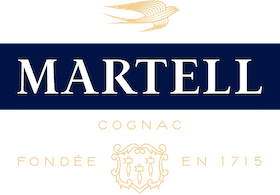What is cognac made from?

Cognac is an amber-coloured alcoholic drink, made from distilling white wine, using only very specific types of grapes. The grapes must be grown in one of the six crus surrounding the town of Cognac in the Charente and Charente-Maritime regions of France.
The Cognac region is divided into six zones, called ‘crus’ – Borderies, Grande Champagne, Petite Champagne, Fins Bois, Bon Bois and Bois Ordinaire. The soil within each terroir has its own specific characteristics that give the eau-de-vie a distinct aromatic profile. The crus are situated in concentric circles, Borderies and Grande Champagne at the heart. Borderies, the smallest cru, accounts for just five percent of cognac vineyards. The signature cru of Martell is renowned for its elegant eaux-de-vie, dominated by notes of flowers and candied fruit.
Cognac is a type of brandy, but earns its name following very strict production methods.
Indeed, the unique terroirs in which Martell Cognac is produced are protected by France’s famous Appellation d’Origine Contrôlée (AOC) system. This system controls the integrity of the ingredients and processes used in some of the country’s best-known products.
For more detail on cognac and how it is made at Martell, see our craftsmanship section.
Cognac grapes
The wine used to make cognac must be made from at least 90% Ugni Blanc, a variety typical for its high yield and late maturation that produces wines low in alcohol, and high in acidity. Folle Blanche or Colombard grapes. The final 10% may be made from Folignan, Jurançon blanc, Meslier St-François, Sélect, Montils or Sémillon grapes.
How is cognac made?
Cognac is made from distilling white wine to create eau-de-vie, aging it in oak barrels for a minimum of two years and then blending different eaux-de-vie to create a specific flavour.
For more detail on how cognac is made, see our craftsmanship section.
Please do not share with anyone under 18. Drink responsibly.













